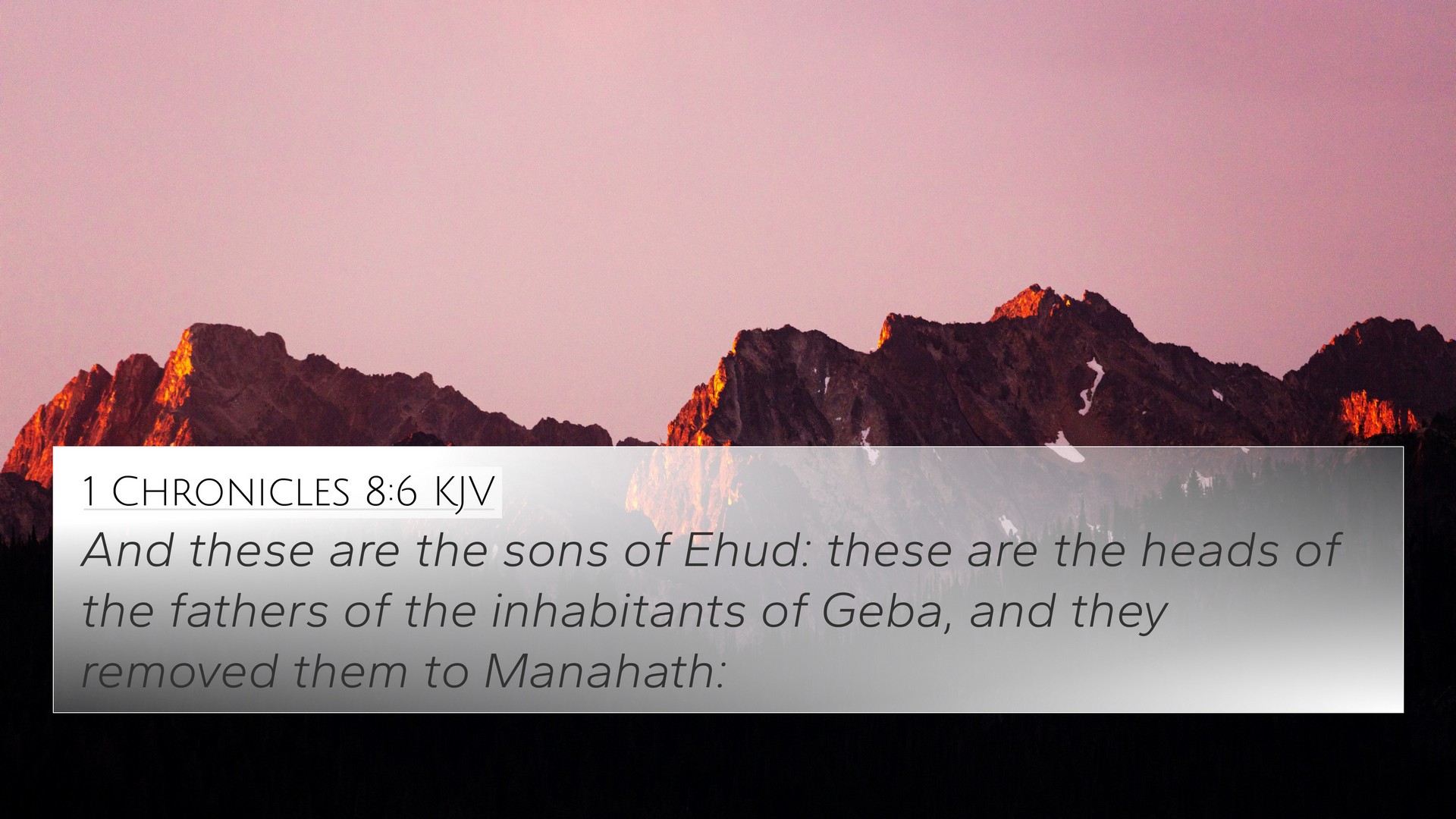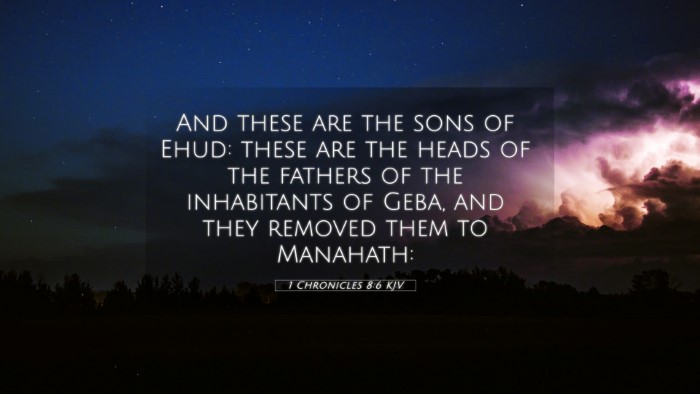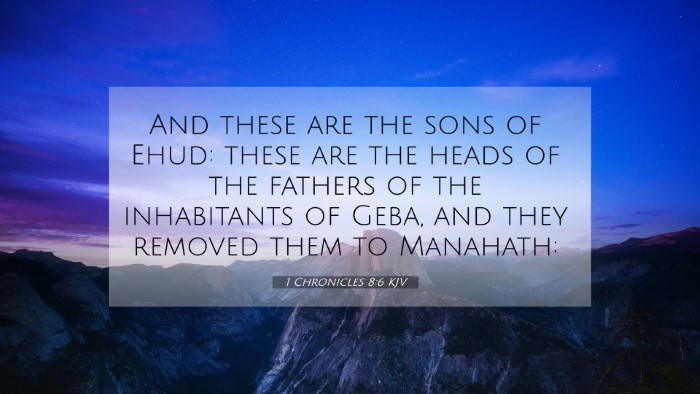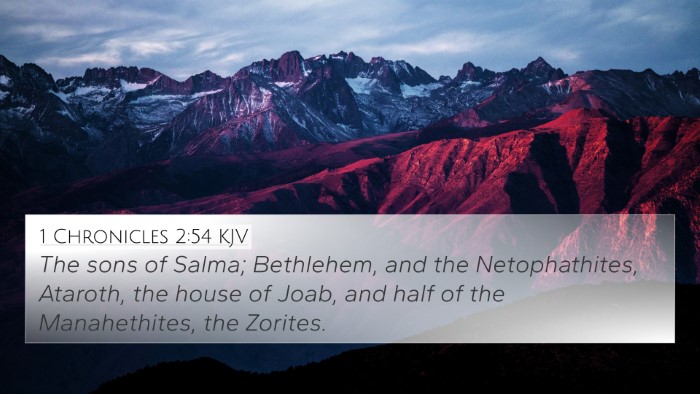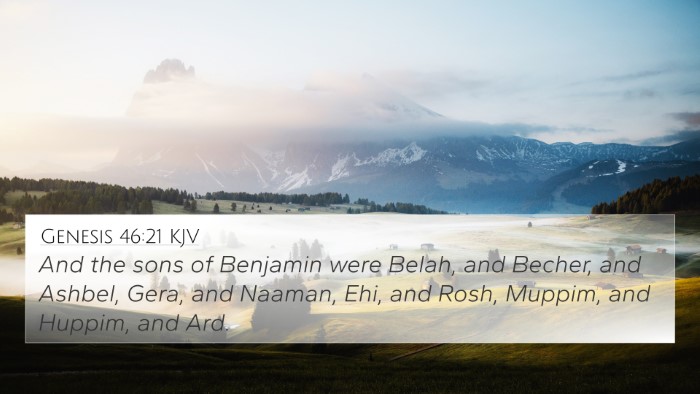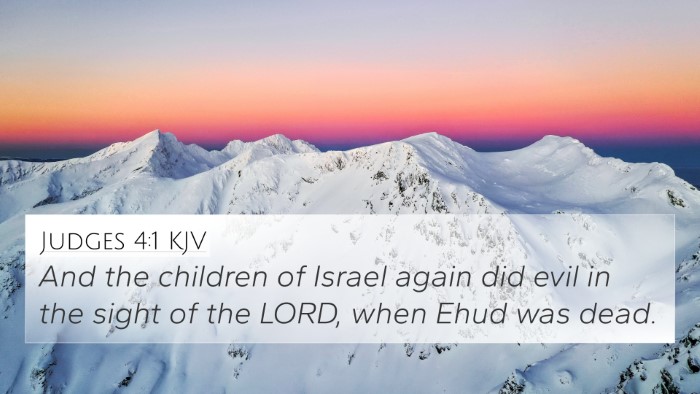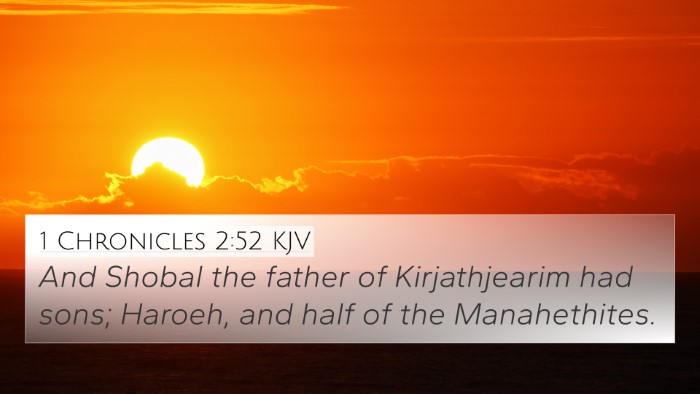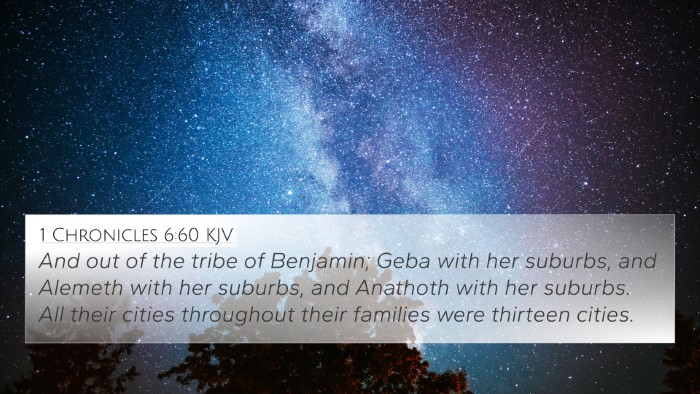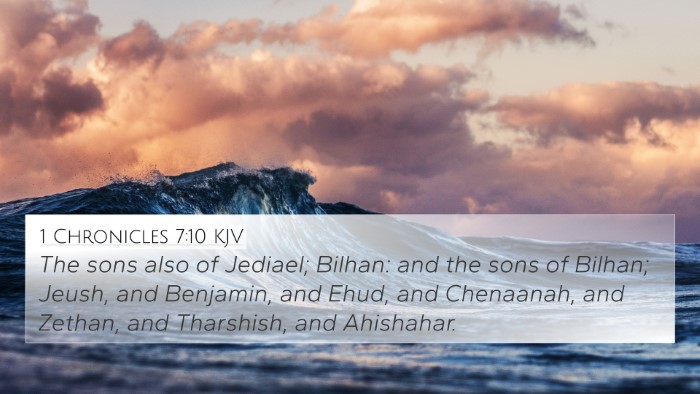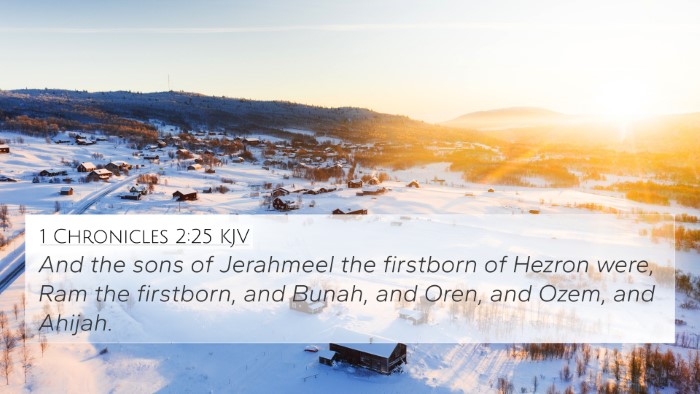Understanding 1 Chronicles 8:6
1 Chronicles 8:6 states, "These are the sons of Ehud: these are the heads of the fathers of the inhabitants of Geba, and they removed them to Manahath." This verse highlights the lineage and familial ties of the tribe of Benjamin, specifically focusing on the descendants of Ehud.
Verse Meaning & Interpretation
This passage serves to document the genealogical details of the tribe of Benjamin, a significant tribe in Israel's history, known for its warriors and leaders. The verse emphasizes the importance of ancestry and the movements of these families within the context of Israel's geography and history.
Insights from Commentaries
Gathering insights from respected public domain commentaries:
- Matthew Henry: He emphasizes the importance of genealogy in establishing both identity and legitimacy within the nation of Israel. Henry notes that familial histories serve as a means to understand God’s providence through generations, linking the past with the present in a meaningful tapestry.
- Albert Barnes: Barnes points out the significance of Ehud, recalling him as a judge of Israel who is remembered for overthrowing King Eglon of Moab. He suggests that this genealogical record links the mental history of the tribe with historical events, thus urging readers to appreciate the overall narrative woven throughout the scripture.
- Adam Clarke: Clarke sheds light on the geographical references in the verse, noting that Geba and Manahath hold historical significance for the tribes of Israel. He underscores the movement alluded to in the text, suggesting it reflects the migration patterns and settlement decisions of the Israelites as they navigated their promised land.
Connections Between Bible Verses
This verse can be cross-referenced with several other scriptures that shed light on the themes of lineage, migration, and tribal significance:
- Judges 3:15: "But when the people of Israel cried out to the LORD, the LORD raised up for them a deliverer, Ehud..." - Establishes the importance of Ehud's role.
- 1 Samuel 9:1: "There was a man of Benjamin whose name was Kish, the son of Abiel..." - Highlights the continued significance of the tribe of Benjamin.
- 1 Chronicles 7:6-12: Further genealogical details of Benjamin, showing the continuity of the tribe’s legacy.
- Genesis 46:21: Mentions the ancestors of the tribe, linking back to the patriarchal period.
- Hebrews 7:14: "For it is evident that our Lord arose from Judah, of which tribe Moses spoke nothing concerning priesthood." - Acknowledges the importance of the tribes in God’s plan.
- Matthew 1:2: "Abraham was the father of Isaac, and Isaac the father of Jacob, and Jacob the father of Judah and his brothers." - Points out the pivotal role of genealogies in the New Testament.
- Romans 11:1: "I ask then: Did God reject his people? By no means! I am an Israelite myself, a descendant of Abraham, from the tribe of Benjamin." - Direct connection to the lineage being discussed in Chronicles.
Thematic Connections and Biblical Significance
The movement of the families from Geba to Manahath illustrates a broader narrative of the survival and adaptation of the Israelite tribes in the historical context. This connection encourages readers to explore:
- Bible Verse Parallels: The repetitive mention of significant figures and families reinforces the strength of community in ancient Israel.
- Inter-Biblical Dialogue: The chronicling of specific tribes and their movements prompts reflection on God's overarching plan as seen throughout both the Old and New Testament.
- Comparative Bible Verse Analysis: Analyzing verses across different Biblical texts allows for a deeper understanding of God's covenants and interactions with His people.
Tools for Bible Cross-Referencing
To enhance your study of 1 Chronicles 8:6 and its connections, several tools can be employed:
- Bible Concordance: Provides references to where specific words or themes appear throughout the scripture.
- Bible Cross-Reference Guides: Useful for identifying relationships between seemingly disparate verses.
- Bible Study Apps: Many apps now provide easy access to cross-references and related resources.
- Commentaries: Utilize well-established commentaries to gain insight into historical context and theological implications.
- Study Bibles: Most modern study Bibles include cross-reference systems to assist in understanding thematic links.
